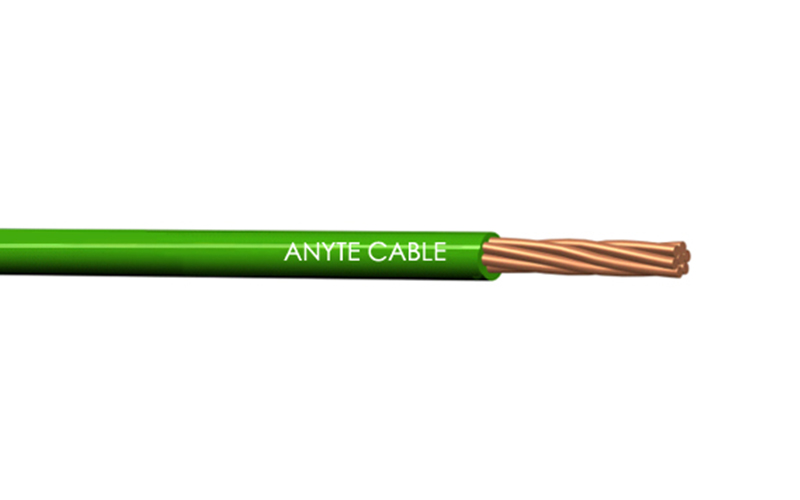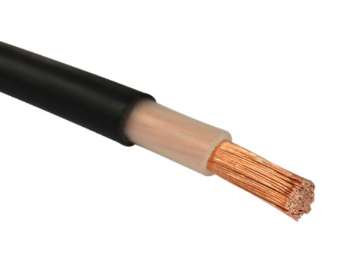In the fast-paced and dynamic landscape of cable manufacturing, adhering to stringent standards is paramount to ensuring safety, reliability, and performance. UL 3271 stands out as a crucial benchmark for wire and cable insulation, particularly in demanding environments such as automotive applications. In this article, we embark on a journey to unravel the key features of UL 3271-compliant cables, delving into the intricacies that make them an epitome of excellence in the industry.
- Temperature Resistance: The Heart of Reliability
UL 3271-compliant cables boast exceptional temperature resistance, a fundamental feature that sets them apart in the realm of cable manufacturing. These cables are engineered to withstand a wide range of temperatures, from extreme heat to freezing cold, ensuring optimal performance even in the harshest conditions. This feature is especially crucial in automotive applications, where temperature fluctuations are inevitable due to the operating environment of vehicles.

- Flexibility: Adapting to Dynamic Environments
Flexibility is a defining characteristic of UL-compliant cables, enabling them to adapt seamlessly to the dynamic and often confined spaces within vehicles. The capacity to bend and flex without compromising performance is a testament to the meticulous engineering and material selection involved in the manufacturing of these cables. This attribute not only simplifies installation but also enhances the overall durability of the cable, preventing wear and tear associated with frequent movement.
- Chemical Resistance: Guarding Against Environmental Challenges
Automotive environments expose cables to a myriad of chemicals, oils, and fluids. UL 3271-compliant cables are equipped with robust chemical resistance, ensuring that they remain unaffected by common automotive fluids. This feature is a critical aspect of the cables’ longevity, preventing corrosion and degradation that could compromise their electrical integrity over time.
- Abrasion Resistance: Withstanding the Test of Time
In the harsh and abrasive conditions found in automotive settings, cables are susceptible to wear and abrasion. UL-compliant cables are designed with superior abrasion resistance, providing an extra layer of protection against friction, vibrations, and mechanical stress. This feature contributes significantly to the cables’ lifespan, reducing the need for frequent replacements and maintenance.
- Flame Retardancy: Elevating Safety Standards
Safety is paramount in automotive applications, and UL 3271-compliant cables prioritize flame retardancy. These cables are engineered to resist the propagation of flames, limiting the potential for fire hazards. This feature aligns with the stringent safety standards set by UL, making compliant cables a reliable choice in applications where safety is non-negotiable.
- Oil Resistance: Thriving in Automotive Fluid Environments
Vehicles operate with various fluids, including oils that can pose a challenge to cable integrity. It compliant cables excel in oil resistance, ensuring that they maintain their structural and electrical properties even when exposed to automotive oils. This feature enhances the overall resilience of the cables, making them a robust solution for the intricate wiring systems within vehicles.
- Voltage Rating: Meeting Performance Expectations
UL 3271-compliant cables are characterized by their specific voltage ratings, indicating the maximum voltage they can safely handle. This feature is crucial in maintaining the electrical integrity of the cables, preventing issues such as insulation breakdown. Manufacturers meticulously engineer these cables to meet and often exceed voltage rating requirements, ensuring optimal performance in diverse electrical applications.
- Compliance with Regulatory Standards: A Seal of Approval
One of the key features of UL 3271-compliant cables is their strict adherence to regulatory standards. Meeting the requirements set by Underwriters Laboratories (UL) is not just a formality but a commitment to quality, safety, and reliability. Manufacturers invest in rigorous testing procedures to certify that their cables align with standards, providing customers with the assurance that they are investing in a product that has undergone thorough assessments.
- UV Resistance: Guarding Against Sun Exposure
In automotive applications, cables are often exposed to sunlight, and prolonged exposure can lead to degradation. UL 3271-compliant cables incorporate UV-resistant materials, safeguarding them against the harmful effects of ultraviolet (UV) rays. This feature ensures that the cables maintain their performance and appearance over extended periods, contributing to their overall durability.
- Moisture Resistance: Defying Environmental Challenges
UL -compliant cables are engineered with robust moisture resistance, a feature that shields them from the detrimental effects of water exposure. Whether facing rain, humidity, or other moisture sources, these cables maintain their structural and electrical integrity. This resistance to moisture is a critical factor in ensuring the reliability and safety of the cables in various automotive scenarios.
- High Dielectric Strength: A Foundation for Electrical Integrity
UL 3271-compliant cables are engineered with high dielectric strength, a critical feature that ensures the cables can withstand high voltage levels without breakdown. This attribute is fundamental in applications where electrical integrity is paramount, providing a robust insulation barrier that prevents electrical leakage and maintains signal quality. The cables’ high dielectric strength is a testament to their reliability and suitability for demanding electrical environments.

- Copper Conductor: Conducting Efficiency
The use of copper conductors in UL 3271-compliant cables contributes to their exceptional electrical conductivity. Copper is renowned for its high conductivity, low resistance, and reliability in transmitting electrical signals. This feature ensures that the cables deliver optimal performance, supporting the efficient transmission of power and data within automotive systems.
- Mechanical Strength: Endurance Under Pressure
Automotive environments subject cables to various mechanical stresses, including vibrations and tension. UL-compliant cables are designed with robust mechanical strength, allowing them to endure these pressures without compromising performance. This feature is particularly crucial in automotive applications, where cables may be routed through challenging spaces and exposed to constant movement.
- Low Smoke Emission: Enhancing Safety During Fires
In the unfortunate event of a fire, UL 3271-compliant cables prioritize safety by emitting low levels of smoke. This feature is critical in confined spaces, such as those found within vehicles, where excessive smoke can pose additional hazards. The low smoke emission characteristic aligns with safety standards and ensures that the cables contribute to a safer environment in case of fire incidents.
- Resistant to Mechanical Abuse: Enduring Wear and Tear
UL-compliant cables are engineered to resist mechanical abuse, enduring wear and tear associated with frequent movement, bending, and flexing. This feature contributes to the cables’ longevity and reliability in demanding automotive applications, where cables may be subjected to repeated mechanical stresses. Manufacturers consider the potential for mechanical abuse in their designs, ensuring that the cables can withstand the rigors of real-world usage.
- Compatibility with Connectors: Seamless Integration
UL 3271-compliant cables are designed with compatibility in mind, facilitating seamless integration with connectors commonly used in automotive applications. This feature streamlines the installation process, reduces the risk of compatibility issues, and ensures that the cables can be easily connected to other components within the vehicle’s electrical system.
Conclusion: Elevating Standards, Ensuring Excellence
In the ever-evolving landscape of cable manufacturing, UL 3271-compliant cables emerge as exemplars of excellence. The key features discussed above collectively contribute to the unparalleled performance, safety, and durability of these cables. As automotive technologies advance and vehicles become more sophisticated, the demand for cables that can withstand the rigors of modern transportation is higher than ever. UL 3271-compliant cables not only meet but exceed these expectations, setting a standard that elevates the entire industry. In the pursuit of innovation and safety, these cables stand as beacons of reliability, ensuring that the intricate wiring systems within vehicles operate seamlessly and securely.




